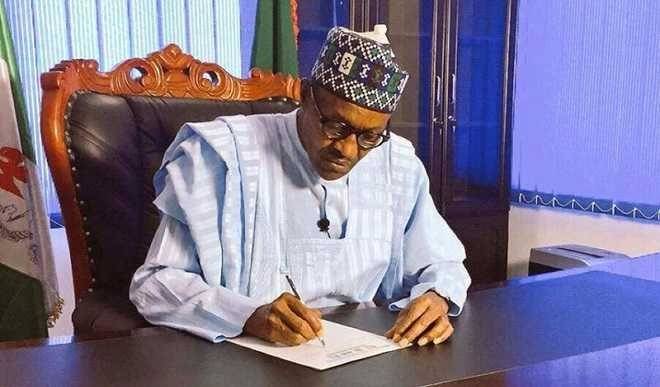The federal government, on July 10, announced a total projected expenditure of N11.9 trillion for the 2021 fiscal year.
The Minister of Finance, Budget and National Planning, Zainab Ahmed, made the announcement in Abuja during the online presentation of the draft 2021-2023 medium-term expenditure framework (MTEF) which is a pre-budget presentation by the government.
- Presidency justifies increment in amended 2020 budget
- What Mamman Daura said about his relationship with Buhari and 2023 Presidency
While making the presentation to civil society organizations, the private sector and the general public, the minister said the projected revenue was N6.988 trillion with a deficit of N5.16 trillion.
As things stand, the 2021 budget will be the largest in the history of Nigeria in naira terms.
The 2020 budget was N10.33 trillion with the total revenue at N8.15 trillion leaving a deficit of over N2 trillion.
Similarly, when President Muhammadu Buhari signed the 2019 budget into law on 27 May, 2019, the total expenditure was put at N8.92 trillion.
Previously, it was the 2018 budget that was famed to be the largest in the history of Nigeria with an aggregate spending of N9.12 trillion, revenue of N7.17 trillion and a deficit of N1.95 trillion.
The 2018 budget was an increase of 23.6% over the one signed into law in 2017.
The pattern in these budgets is the widening deficits and the government’s penchant to borrow to finance it; a pattern which the 2021 proposed expenditure has taken to an alarming level with a deficit of over N5 trillion.
We understand that budget deficits are a common, sometimes necessary, ingredients of budgets globally.
One would also sympathise with government since the National Bureau of Statistics (NBS) announced that the economy is going into the second recession in four years.
So, it makes sense for the government to borrow in order to energise the economy.
However, of concern is the fact that the borrowing is throwing the nation into a vicious cycle of generating revenue not for Nigerians but for the creditors.
Not surprisingly, the minister, during the aforementioned presentation said the government would find more areas to generate revenue and reduce waste.
Both of these solutions are not comforting to Nigerians because, first of all, when the government promises to cut waste and reduce extravagance, it simply does not.
Instead, it spends in such a manner that is worrisome to Nigerians. Over the years, in this regard, it appears that the government lacks the discipline to enact what it promises.
Secondly, when the government promises to look for more creative ways to generate revenue, more often than not, it turns to taxes; and sadly, it does so with such manic zeal that the ultimate goal is not to serve Nigerians, but to serve the foreign creditors.
Interestingly, such high and often confusing taxes kill our businesses, the death of which kills our jobs as many companies close shop and move to neighbouring countries. This ultimately makes nonsense of the government’s sincerity about ease of doing business.
It is no wonder some have already called this huge proposed expenditure a pipe dream. There are a number of reasons why Nigerians don’t get excited about budgets.
One, as a fiscal policy, the budget is a law that is supposed to be implemented in its entirety – failure to do that is an impeachable offense. But here we treat national budgets like household estimates, to be used and abused according to the proclivities of selected persons.
Also, Nigerians will see little, if any, of it. Our government has refused to spend on the people at a time that the world has realised that human capital (the wealth in the people) is two thirds of the wealth of nations.
For example, in the 2018 budget that was admired for its size, education, the first component of human capital was given 8% – that is both education and UBE. The global standard is for education to be above 20% of the budget.
The allocation to health, the second component of human capital was also dismal.
This shows that the money is not technically spent on Nigerians.
The government is always under pressure to generate revenue so that it can pay debts to the foreign creditors which usually means more taxes on businesses and individuals; which means we simply work and earn for the creditors.
We hope that the government will get it right this time. Allocate appropriately and make the budget work for Nigerians.

 Join Daily Trust WhatsApp Community For Quick Access To News and Happenings Around You.
Join Daily Trust WhatsApp Community For Quick Access To News and Happenings Around You.


